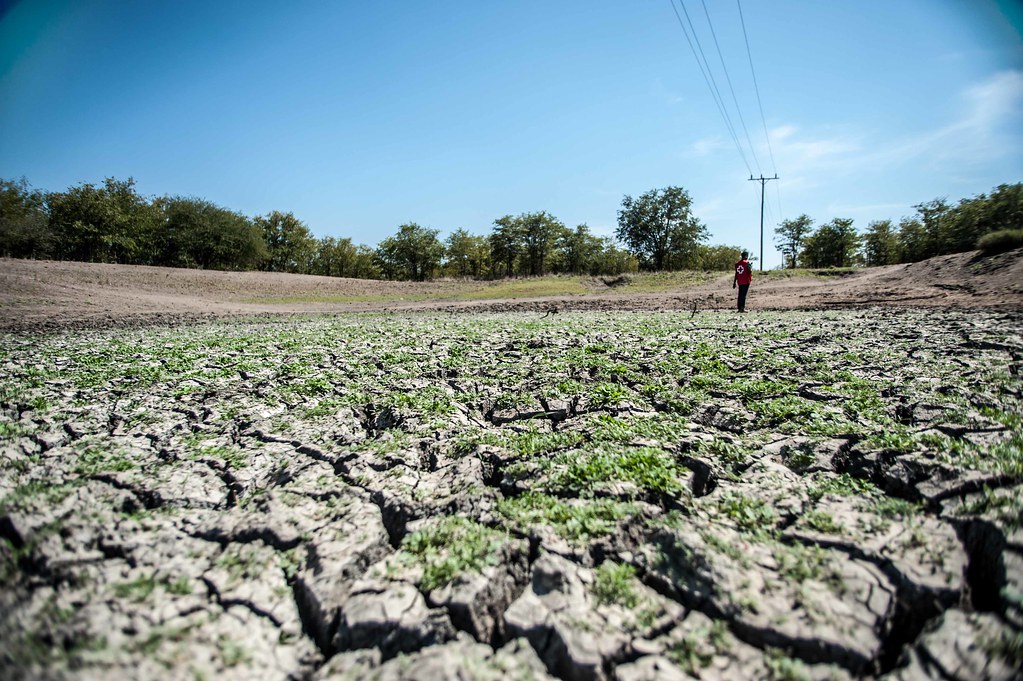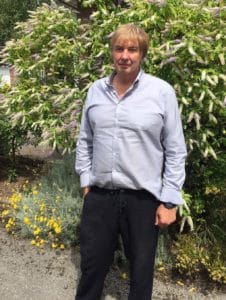
Coronavirus, Food Security and Sustainability –
The End of Normal
by Brian McGavin
The COVID-19 virus and its economic impact diverts our attention from every other issue right now, but it doesn’t mean dumping our growing sustainability, climate and ecological challenges.
The pandemic is a wake-up call to a complacent civilisation totally dependent on a habitable planet. Politics so often dismisses risk, driven by a money system where growth is a disease and pretends to be a cure. Where we have abandoned strategic resilience for a fragile global supply chain for many basic goods.
Key issues like food security, where the UK averages just 50% self-sufficiency and the transformation over the last 15 years to dependence on ‘just in time’ supply chains in a declining oil and energy landscape, pose immense challenges. All countries must look to rebalancing debt-driven economies from the mantra of endless economic growth.
The UK and many other countries under growing population pressures cannot keep consuming ever more green landscapes and productive farmland for housing and business units. The pressure to build on floodplains as climate change increases the severity of rainfall in some areas and drought in arid zones cannot continue.
More demand and speculation has seen property prices reach unaffordable levels for many, while the price of food has plummeted in recent decades, falling from over 30 per cent of incomes to an average of 8.2 per cent in the UK and 6.4 percent in the United States. The food industry’s pursuit of cheapness and convenience above all else has left us hooked on chemical fertilizers and plastic packaging. The hidden costs of cheap food is much higher, with forests destroyed for grazing pasture, depleted aquifers and toxic slurry.
Industrial farming methods are rapidly making soils infertile. The UN warned in December 2014 that 95 per cent of our food comes from the soil. If current rates of depletion continue, the world’s topsoil could be gone within 60 years. Is anyone listening?
Opportunities for diseases to move between species in unregulated wild animal markets in China and East Asia have seen contagion and several global pandemics emerge since 2000. These markets are hell on earth for animals stacked in cages and slaughtered on the spot amongst blood and faeces, because the customers demand ‘freshness’. China has, for now, limited such practices but they may continue. The Ebola virus is believed to have emerged from eating wild animal ‘bushmeat’ in several West African countries.
Changed Thinking – A Pandemic Reshaping Our World
The immense challenge the virus brings shows that we can rapidly change the way we live and the way we think in ways that can help us transition to a more sustainable pathway for our children and the planet we take for granted – enabling a transition to lower economic throughput, and ecological balance.
Many are now calling for solidarity and focus on a scale unprecedented since the Second World War. A resolve necessary to challenge the mantra of endless growth and resource over-consumption in a finite world. Alongside this we must boost the ‘green’ economy where there is great opportunity to create employment.
The rapid impact of the COVID virus on our lives has seen global economic growth plummet. People are in fear of losing their jobs and we are struggling to source simple protective equipment. Priorities must change to secure our future. We don’t have to rebuild our economic model exactly as before.
Increased homeworking is possible, reducing the stress on peak hour commuting. To protect more jobs there is a strong case for encouraging more flexible working, where people can opt for four or three-day weeks with a commensurate cut in pay, enabling a better work-life balance to pursue other employment interests. The idea of flexible working has been around a long time, but was originally focused on women. The time has come for much wider adoption.
For many people homeworking is not an option, but flexible hours have value. For millions more in overcrowded, poor countries without a welfare safety net, limited health resources and high unemployment, work is imperative and social distancing in poverty-stricken slums almost impossible.
The nuclear industry is another disaster waiting to happen. Some reactors have been shut down due to the pandemic. Many reactors around the world are running well beyond their original design life and need specialized replacement parts. The industry admits it has backup plans to keep workers on site 24/7 – providing them with cots and pre-packaged food.
If America experiences a second or third wave of disease and the pandemic drags on for years, can the nuclear industry hold out? Can they just keep training replacements for specialist sick or dying workers, says Grant Smith, Senior Energy Policy Advisor for the Environmental Working Group, Washington D.C.
The COVID virus is set to impact heavily on many fragile states, decimating communities and economies. Developed nations are spending billions on trying to keep their own economies afloat, but we abandon action in fragile nation/states at our peril. The potential for mass migration panic is enormous. Rapid population increase in many areas already on food aid will compound the trajectory to a social and ecological crisis. Our leaders need to focus on these realities. Overconsumption in many countries and continuing population growth are unsustainable.
The impact on the airline industry and tourism alone must cause us to rethink growth-driven policies. The airline industry currently contributes about 2 per cent to carbon emissions, but short-haul take-offs and landings use more fuel in an increasingly energy constrained world. We need to plan for fewer short haul flights and more high-speed rail.
The money virus
A killer virus has exposed major weaknesses in western capitalist economies. Policy-makers flooded the world with liquidity without directing it toward sustainable investment opportunities. A money market driven by instant transactions causes panic and instability. It is surely time for regulators to step in to control this volatility that is crashing currencies and destabilising countries. Where markets reflect changes maybe twice a week rather than minute by minute. For too long governments have allowed speculators to operate in tax havens without scrutiny and control. This too must change. If we fail to rebuild differently and more sustainably, we face an increasingly uninhabitable planet.
The billionaires who own indecent amounts of personal wealth in the global economy must recognise that all our long-term interests are connected in this crisis. Debt write-off and some form of global wealth redistribution seems increasingly essential.to stabilise many countries.
The pandemic’s impact in reducing unnecessarily abundant air traffic flows and vehicle journeys has reduced emission levels. Fish have are returning to Venice’s canals after daily cruise ships have been curbed.
We need to rethink every aspect of our throw-away, growth-obsessed society and work towards an ecologically coherent steady state economy that gives us quality of life in balance with renewable resources.

Writer/environmentalist;
Tanja Rebel eco-philosopher